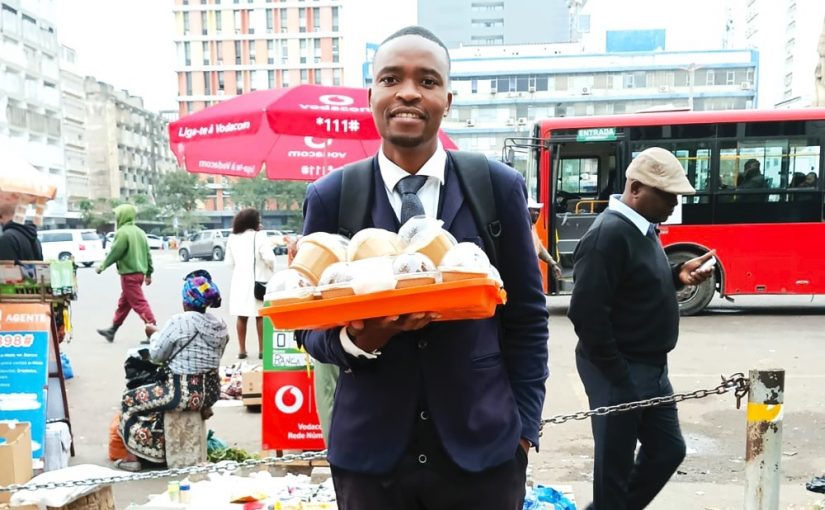T4S in Mozambique partners with EON Reality to revolutionize safety and firefighting training with ...
Selling molina door to door in central Maputo- the remarkable story of a Mozambican startup

Image: Notícias
The opportunity arose out of a problem: the need to pay personal bills after losing his job during the Covid-19 pandemic. That’s when a young Mozambican discovered that products around him could generate money – namely producing the cassava and peanut delicacy popularly known as molina.
Arsénio Sitoe is 40 years old, and from Maputo province. He started producing molina three years ago when he lost his job, which also supported his family.
Today, he sells molina door to door and to public and private institutions on the streets of Maputo. Customers for his product include bankers, journalists and even informal vendors in the city centre.
In fact, it was a suggestion from a friend after Sitoe asked him about the possibilities of investing in a business with low capital, considering the situation he was facing at the time.
“My friend asked me what I could do, and I replied, “Molina”. So he suggested that I invest in the activity and said that the solution was in my own hands,” explains the entrepreneur.
So Arsénio Sitoe started up his business, spending just 300 meticais on ingredients for his first batch. It sold out, leaving him with a good feeling about the business.
He explained that, a few months later, he created his own manufacturing and vending company, “A Molina do Proffy”, which is in the process of being formalized.
Currently, the company, comprising five people including the owner, produces 30 400-gram jars of peanut molina per day and manages to sell them all, mainly through door-to-door deliveries.
Molina is consumed throughout the country, especially in the southern region of Mozambique, where most of the cassava flour (tapioca, or rhale), one of the main ingredients, is produced.












Leave a Reply
Be the First to Comment!
You must be logged in to post a comment.
You must be logged in to post a comment.